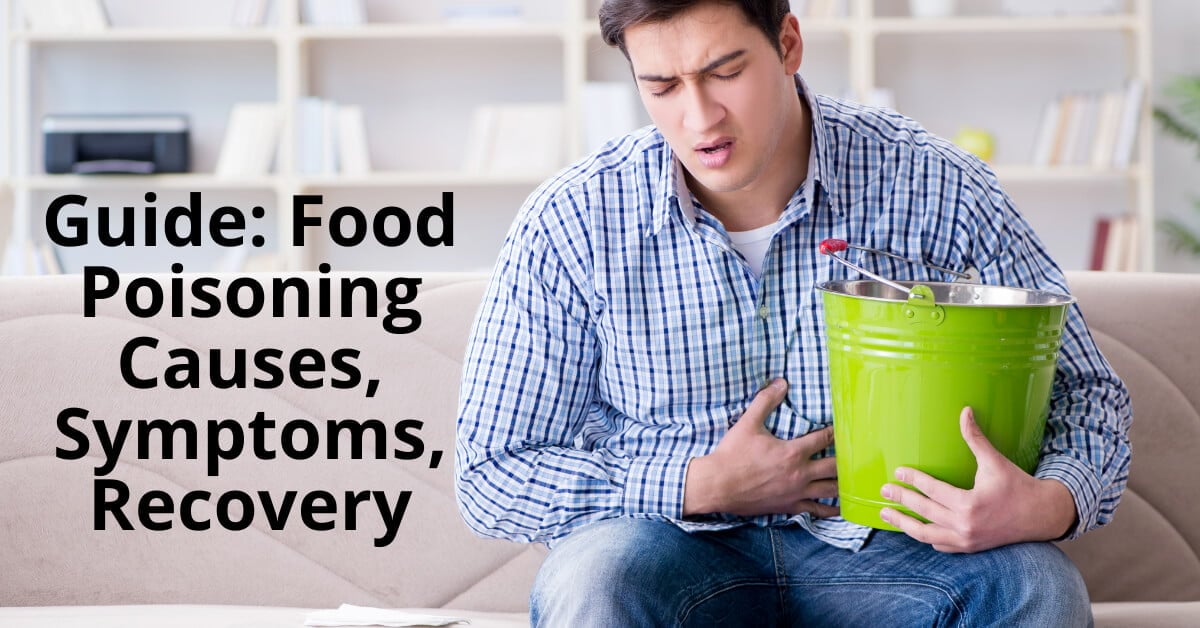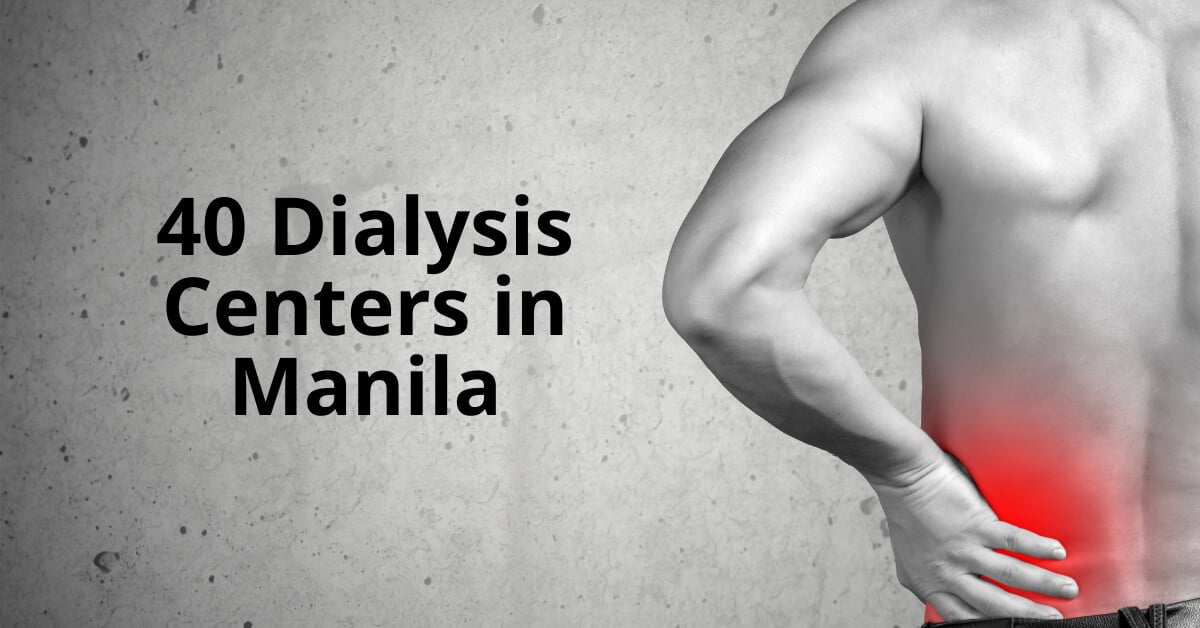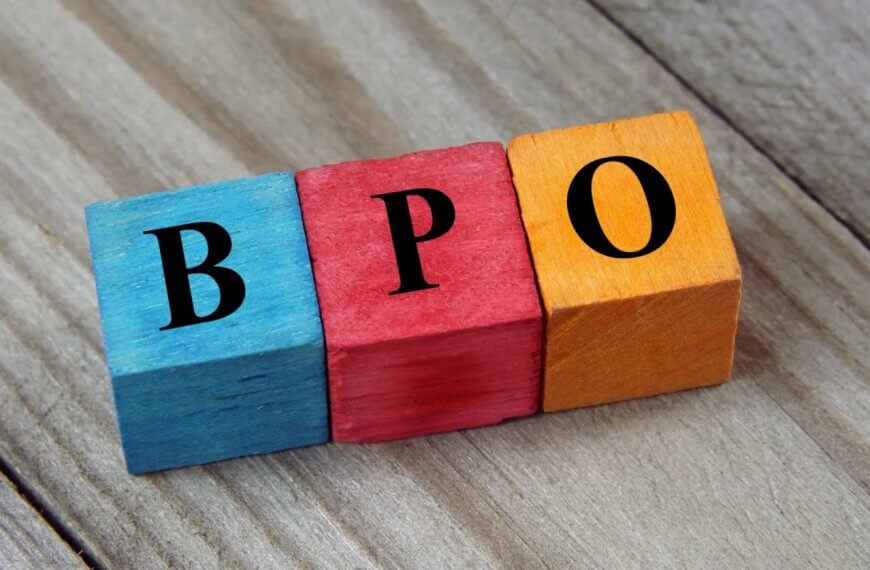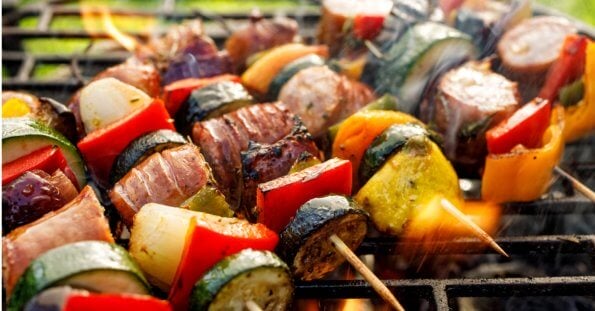Symptoms of Food Poisoning
Have you been feeling uncharacteristically exhausted after eating a questionable meal? Food poisoning symptoms may mimic other illnesses, and can leave you wondering what you should do next.
Food poisoning is a form of illness caused by contaminated food or water, which leads to an upset stomach. It is estimated that 1 in 6 people will contract it at least once in their lifetime. Symptoms of food poisoning can range from mild to severe, and can have long-term health impacts if left untreated.
What Causes Food Poisoning?
Food poisoning can be caused by bacteria, parasites, or toxins in the food that you eat. Bacterial causes of food poisoning include salmonella, E. coli, and listeria. Other common causes include viruses and fungi.
How to React to Food Poisoning
If you think you might have eaten something that gave you food poisoning, it’s important to know how to react before it gets worse. If you think you might have eaten something that gave you food poisoning, it’s important to know how to react before it gets worse. In this article, we go over some steps to help manage your symptoms and feel better!

If you think you have food poisoning, it can be an incredibly unpleasant and sometimes dangerous situation to be in. It is important to act quickly if you suspect that you have consumed something that has made your stomach upset. Here’s a list of some steps you should follow if you think you got food poisoning:
Tips to follow when you get food poisoning
1. Figure Out When the Symptoms Started
Knowing when the symptoms started will help your doctor determine what caused them. You may also want to take note of any possible food or drink causes or other events around the same time your symptoms started, such as swimming in a polluted ocean.You may also want to take note of any possible food or drink causes or other events around the same time your symptoms started, such as swimming in a polluted ocean.
2. Remain Hydrated
Food poisoning can be dehydrating, so it is important to stay hydrated and avoid alcohol and sugary drinks, as they will only make the situation worse and make you more dehydrated. Keep drinking plain water, ginger ale and clear broth to maintain your hydration levels at all times throughout your recovery period.
3. Eat Light Meals
When recovering from food poisoning, it’s best to eat light meals like rice, toast, clear liquids like jello and soups with low-fat content (e.g., chicken noodle soup.) Try not to consume too much dairy or fried foods as this may further irritate your stomach lining. Avoid eating raw fruits and vegetables until after 48 hours for unspoiled meats/dairy products; 72 hours for cooked meats/dairy products; four days for cooked vegetables; five days for nuts, legumes and grains; six days for eggs; and seven days for fish/shellfish — unless you are confident they were handled properly at all stages of preparation and storage prior to consumption.
4. Seek Medical Care
If at all possible, seek medical care if you think that you might have ingested something toxic like salmonella or E-coli due to food poisoning through contact with animals or their manure prior to consuming the contaminated food item(s). Additionally, if your symptoms appear severe enough—such as severe abdominal pain, vomiting blood or bloody diarrhea—do not hesitate to go seek medical attention immediately!If you think you have food poisoning,
6 tips to avoid food poisoning
Food poisoning is an illness that can occur when you eat or drink contaminated food or drinks. It can range from mild to serious and is caused by harmful bacteria, viruses, or parasites. Here are 6 tips to help you avoid food poisoning and stay safe:
#1. Cook Food Thoroughly – Make sure to cook your food completely and at the right temperature to kill any harmful bacteria present. Be sure to check that all meat items are cooked properly by using a thermometer if necessary.
#2. Clean Surfaces & Hands – Clean all surfaces that come in contact with food and wash your hands regularly when handling food items. This is especially important when handling raw food. When handling food, clean all surfaces that come in contact with food and wash your hands regularly when handling food items, especially raw food.This is especially important when handling raw food. When handling food, clean all surfaces that come in contact with food and wash your hands regularly when handling food items, especially raw food. when handling raw food.- Clean all surfaces that come in contact with food and wash your hands regularly when handling food items. When handling raw food, do not touch it with your hands. Wash your hands regularly when handling food items, particularly raw foods such as chicken, turkey, fish etc.
#3. Store Food Properly – Store food properly in order to avoid any contamination occurring between different types of food items. Store raw/cooked foods separately in sealed containers/bins and make sure they are kept at the correct temperature range (below 40 degrees Fahrenheit).
#4. Don’t Reuse Cooking Utensils & Dishes – Avoid reusing cooking utensils for different dishes in an effort to limit cross-contamination between different dishes and ingredients. Always use fresh utensils when preparing meals!
#5 Separate Your Food -When shopping for groceries, always separate cooked and raw foods in order to avoid any cross-contamination. This is especially important when you are taking food home from the store.
#6 Use Date Labels – Make sure you correctly label food items with date labels so you’re aware of how long they have been sitting around for before preparation or consumption. Pay special attention to pre-packaged products such as cans as this will let you know when it should be consumed by or thrown away safely from the kitchen, as well as expiration dates.
7. Always avoid cross-contamination between foods (such as never keeping raw meat near fruits/vegetables) as well as ensure all areas/utensils used for cooking are in clean condition before use! Always avoid cross-contamination between foods (such as never keeping raw meat near fruits/vegetables) as well as ensure all areas/utensils used for cooking are in clean condition before use!
How do I survive food poisoning?
Food poisoning is a common and unpleasant issue that can occur from eating contaminated food. It’s important to know how to survive it if you ever experience it. Whether you have eaten something that didn’t agree with your body or may have been exposed to bacteria in your food, here are some steps you should take if you ever experience food poisoning:
1. Drink plenty of fluids – Drinking plenty of water and electrolyte drinks are essential for keeping hydrated during a bout of food poisoning, as it will help flush out toxins in your body. If possible, try to drink low-sugar fluids such as clear broth soup and diluting 1/2 teaspoon of sea salt into 5 ounces (145 ml) of water every hour.
2. Eat small meals – Eating small meals every 2 hours instead of large meals can be helpful when attempting to stomach food after a bout of food poisoning. Starchy foods, such as white rice, pasta or crackers, can be an easy way to provide energy without straining the digestive system too much.
3. Avoid certain foods – Certain foods are more likely to harbor bacteria and other contaminants that can make food poisoning worse or trigger relapses. These include raw meat and shellfish, unpasteurized milk and cheese, undercooked eggs, cooked leftovers and canned goods that may have gone bad.
4. Replace electrolytes – Electrolytes are minerals like sodium, potassium and calcium that help regulate blood pressure levels by controlling the amount of fluid in your cells, so they don’t become dehydrated. Sports drinks can help replenish lost electrolytes while also providing extra energy and hydration during bouts of food poisoning.
5. Rest – One of the best things you can do when experiencing food poisoning is rest as much as possible until symptoms subside completely. This allows your body time to recover without having to use the energy required for everyday activities like standing or walking upright for long periods of time or engaging in any strenuous tasks. It also allows your body to use more fluid and nutrients at one time than it normally would.
6. Seek medical attention -If after trying these tips your symptoms don’t improve or worsen over time then seek medical attention from a doctor right away as you can not treat the disease at home on your own.
In conclusion, if you think you have food poisoning it is best to stay calm and react accordingly. Each case of food poisoning is different so be sure to call your doctor if your symptoms persist for more than a day or two. It is also important to remember that proper handwashing, cooking meat thoroughly, and keeping foods refrigerated all help prevent food poisoning. Stay safe and take care!
Want to Learn more? Fast Facts About Food Poisoning
























